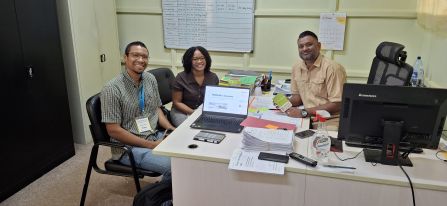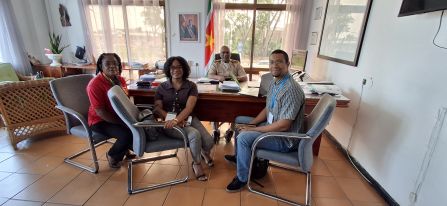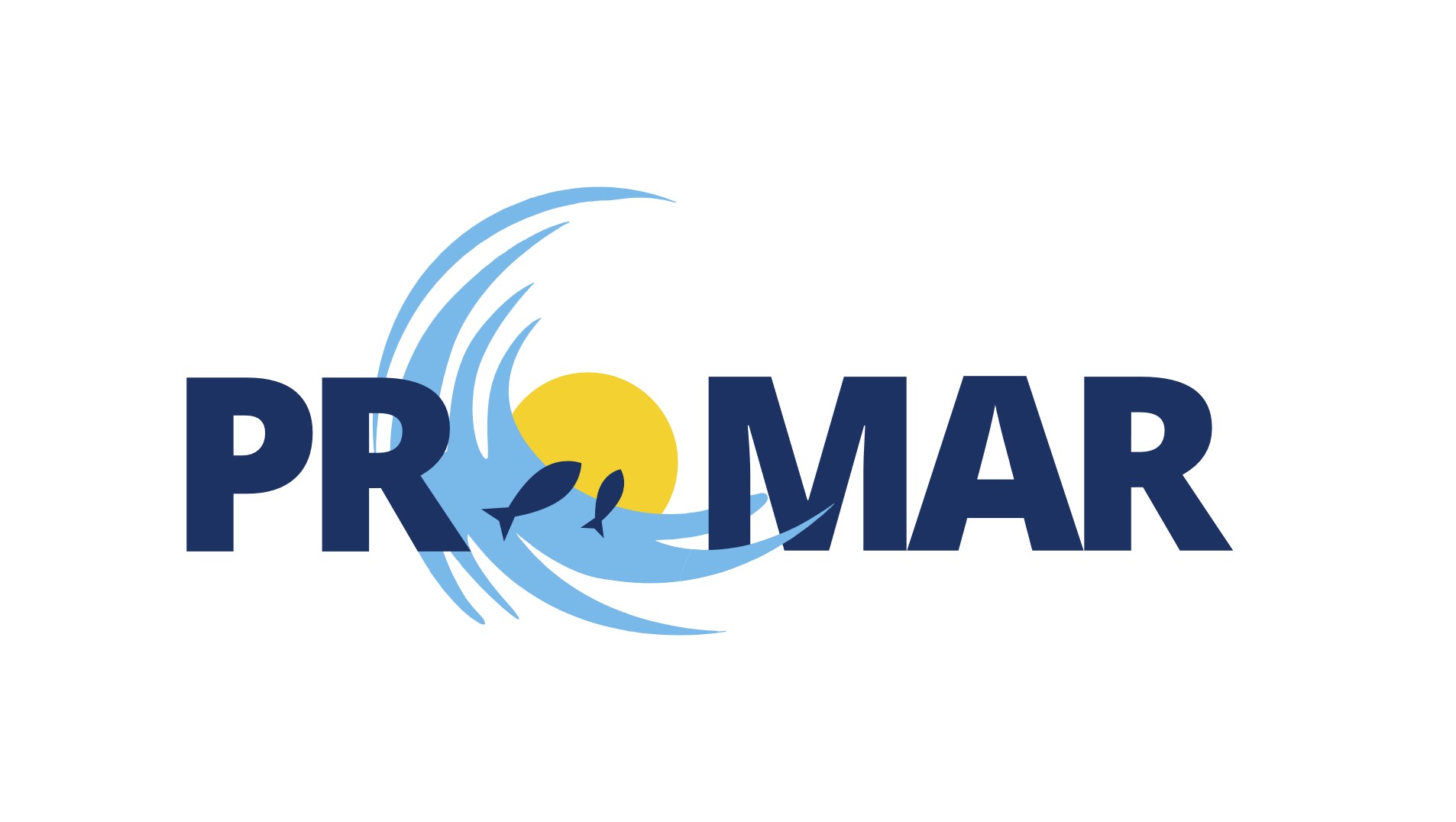Stakeholder Engagement Sessions- Selection of Demonstration Sites (Suriname)

Green Heritage Fund team (Desire Simons & Cheyenne Samson, left) meeting with Mr. Radjniesh Panchoe (right), representative of the Waste Management Department at the Ministry of Public Works

Green Heritage Fund team (Desire Simons & Cheyenne Samson, front; right) meeting with Mr. Ricardo Bhola, District Commissioner of Paramaribo Northeast (back; right)
Strengthening Partnerships to Combat Plastic Pollution in Suriname
Plastic pollution is a growing environmental threat that requires united action—and in Suriname, collaboration is proving to be the way forward. Our partner at Green Heritage Fund Suriname is leading efforts to implement the PROMAR project (Prevention of Marine Litter in the Caribbean Sea) by engaging directly with key local stakeholders.
In a recent series of strategic meetings, Green Heritage Fund Suriname convened with critical public sector leaders to ensure that the goals of the PROMAR project align with the needs and capacities of local communities. These meetings included:
Mr. Sergio Anoesa, Market Manager of the Central and Vreedzaam Market,
Mr. Radjniesh Panchoe, representative of the Waste Management Department at the Ministry of Public Works, and
Mr. Ricardo Bhola, District Commissioner of Paramaribo Northeast.
The discussions centred around how best to support the PROMAR project’s local implementation, with a focus on reducing plastic waste at the source, improving public waste management systems, and engaging market communities in sustainable practices.
By bringing together decision-makers from both municipal and national levels, Green Heritage Fund Suriname is building the foundation for a more integrated approach to tackling plastic pollution. These partnerships are essential for driving long-term, community-led solutions that protect Suriname’s natural ecosystems and enhance public well-being.
This is a critical step forward in the PROMAR initiative’s broader mission to safeguard the Caribbean Sea from the impacts of marine litter—and a clear demonstration of the power of collaboration in driving real environmental change.
